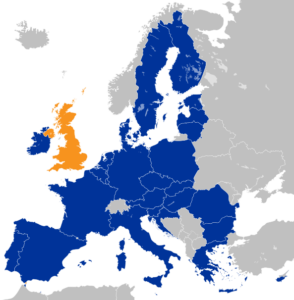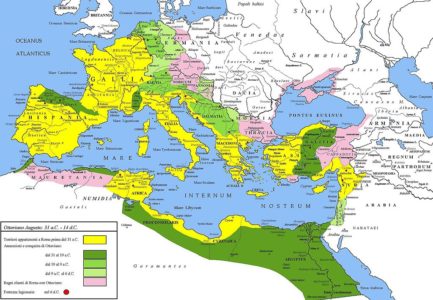My Thoughts the Morning After…
Last evening, as the results of the American election were being reported on TV, I sent this short byline to all my friends on the Chinese QQ social media: BREXIT USA: Ignorance Wins!!
Here is my fuller explanation of why I chose to express this judgement on the political outcome of the American election.
Two major decisions have occurred in the West in recent days. Both decisions were decided by popular elections.
 First, the people of Britain voted June 2016 on a question of breaking away from the European Union. (BREXIT: Britain Exit.) This was a vote that was extremely close, less than 52% of all people in Britain voted for leaving the union with Europe. Of these, the vast majority (up to 70% in parts of England) voted in favor, but Scotland, Wales, and N Ireland (which are also part of the United Kingdom—UK) generally voted in favor of staying with the European Union. This decision was therefore “highly divisive,” meaning that the strong internal disagreements within Britain will continue for a long time, and the process of actually completing a separation is still very unclear.
First, the people of Britain voted June 2016 on a question of breaking away from the European Union. (BREXIT: Britain Exit.) This was a vote that was extremely close, less than 52% of all people in Britain voted for leaving the union with Europe. Of these, the vast majority (up to 70% in parts of England) voted in favor, but Scotland, Wales, and N Ireland (which are also part of the United Kingdom—UK) generally voted in favor of staying with the European Union. This decision was therefore “highly divisive,” meaning that the strong internal disagreements within Britain will continue for a long time, and the process of actually completing a separation is still very unclear.
Most people agree that Britain will be economically much poorer with a separation from the rest of Europe, although the popular election promise to the common people was the opposite. Clearly, most people who have the right to vote in a referendum like this do not understand the complexities of international trade; they are not trained as economists. Rather, their opinions are easily swayed/changed by emotional speakers who promise them benefits (maybe better jobs and maybe greater pride in being independent). Most people with better education and understanding of economics are sure that the British people made the wrong choice. In fact, the United Kingdom, which has existed as a unified state since 1707 could now be in danger of breaking up. Only England clearly wants to separate from Europe. Other states in the UK want to remain within the European Union. Times are very troubled in Britain today.
 As of last night (November 8, 2017), the USA has voted for a president who wants to “tear-up” the treaties and agreements between the USA and much of the rest of the world. He wants to renegotiate trade agreements with Canada, Mexico, China, Europe, and many other friendly nations. He also wants to change long-standing military alliances with Europe, Japan, Korea and many other nations. Most educated people in the USA and the rest of the world think that he has no experience and is not qualified to lead a nation as large and as powerful as the USA. Yes, the common people on the street have accepted his many promises for a “better life.” Again, economists disagree. The future is very uncertain now in America and in much of the rest of the world. They have no understanding of what may happen next, and have lost faith in America to be a leader in the world.
As of last night (November 8, 2017), the USA has voted for a president who wants to “tear-up” the treaties and agreements between the USA and much of the rest of the world. He wants to renegotiate trade agreements with Canada, Mexico, China, Europe, and many other friendly nations. He also wants to change long-standing military alliances with Europe, Japan, Korea and many other nations. Most educated people in the USA and the rest of the world think that he has no experience and is not qualified to lead a nation as large and as powerful as the USA. Yes, the common people on the street have accepted his many promises for a “better life.” Again, economists disagree. The future is very uncertain now in America and in much of the rest of the world. They have no understanding of what may happen next, and have lost faith in America to be a leader in the world.
 In the ancient history of the Western World, “Pax Romana” described a period of 200 years of peace (Latin language for peace was “pax”) around the time of Christ and the height of the Roman Empire (27 BC to 180 AD). There was much prosperity and peace (wealth and social stability) as a result of the strong dominance of Rome. Later, the Western World experienced many more wars. Civilization slowly sank to a low level and troubles continued for a very long time.
In the ancient history of the Western World, “Pax Romana” described a period of 200 years of peace (Latin language for peace was “pax”) around the time of Christ and the height of the Roman Empire (27 BC to 180 AD). There was much prosperity and peace (wealth and social stability) as a result of the strong dominance of Rome. Later, the Western World experienced many more wars. Civilization slowly sank to a low level and troubles continued for a very long time.
In our papers this morning, some of the leading European leaders are saying that the election of Donald Trump in the USA means that “Pax Americana” has come to an end. They mean that for about 100 years now in The West, America has been a strong leader, both militarily and economically. Much of the Western World, at least, has looked to America as a country of stability and good leadership. At least, since the time of the Second World War (both in Europe and in Asia), there has been a period of peace and prosperity for many people in the world (especially for countries that enjoyed positive treaties and agreements with the USA). Now there is much uncertainty. Will the new US president really do all the things he has said he would do? Does the “man on the street” of America really understand all the complexities of International trade, security and economic agreements? Did these people vote out of ignorance, being only concerned about dreams of a better future for themselves and the promises of a man that seemed to promise them too many good things?
In the middle of this USA election, a funny thing happened here in Canada. A news headline this morning says: How to move to Canada: Immigration website crashes as Donald Trump election victory looks imminent. It means that many people were so discouraged/frustrated with the election results that they were already going online to get information from the Canadian government website on how to move/emigrate to Canada. The computer system could not process all the requests for information and it broke down. This reminds us of another time when Americans tried to leave the USA in large numbers: the time of the American war in Vietnam. Many young men refused to fight in that war and rather moved to Canada with a belief that Canadian leadership was more sane and peaceful. But maybe we in Canada are just more lucky. I doubt if the common man on the street, as we say, is any more intelligent than in America.
Recently I was reading a book about the founding of the American Republic. Yes, there was a kind of democracy there from the time of the War of Independence that created the USA as a separate country. However, democracy did not include the right of every citizen in the USA at that time to have voting rights. The early American leaders regarded voting by poorly educated people as very dangerous. They used the term “mob rule” to describe this fear of giving such important decision making over to everyone. Yes, “mobs” are considered to be very unpredictable and dangerous. Well educated people in both Britain and in America today are wondering if democracy has now gone too far. Is the future now being determined by “mob rule”? Is the future of some of the most powerful nations on earth now being directed by ignorance, rather than wisdom? As we sometimes say: Only time will tell.
First published: 2016/11/09
Latest revision: 2017/02/18
